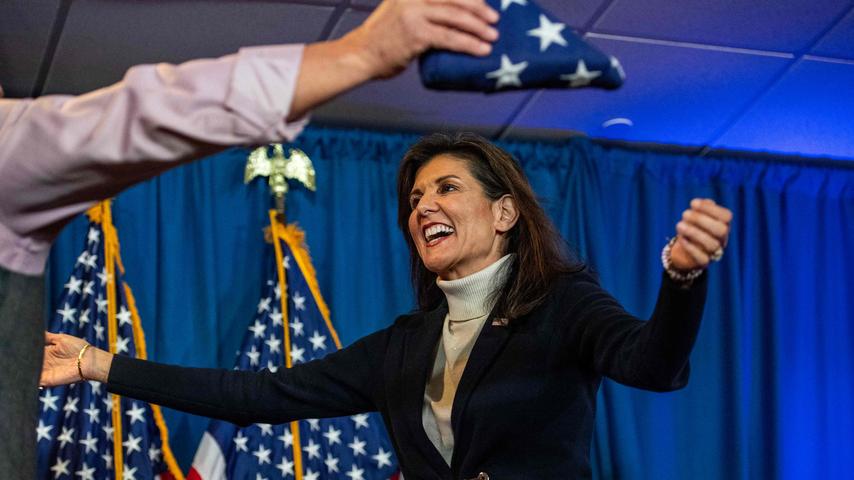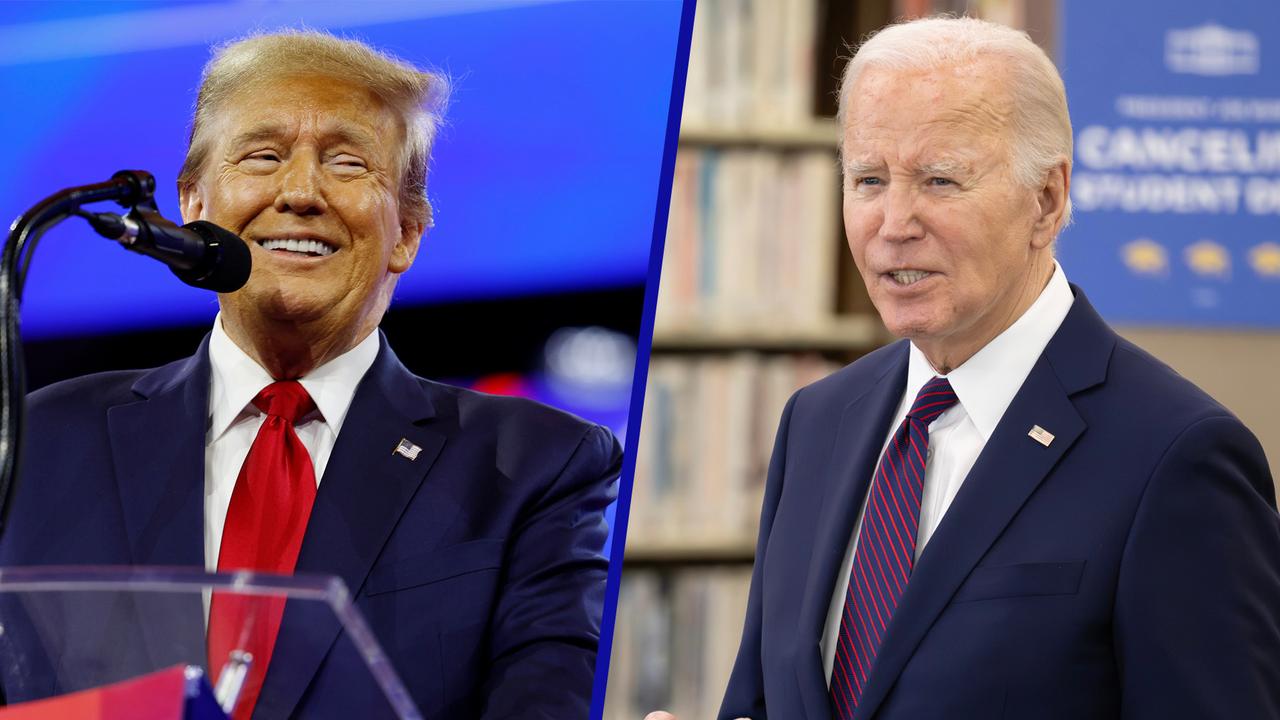The biggest day of the US primaries has arrived: Super Tuesday. Voting for potential presidential candidates takes place in fifteen states. What exactly does this day mean? And how interesting is it with Biden and Trump being certain winners?
Voorverkiezingen op Super Tuesday
- Alabama, Alaska, Arkansas, Californië, Colorado, Maine, Massachusetts, Minnesota, North Carolina, Oklahoma, Tennessee, Texas, Utah, Vermont en Virginia
- Amerikaans Samoa (Democraten)
- Uitslag voorverkiezingen Iowa (Democraten)
Today, primaries are held in fifteen states and American Samoa. The results of the Democratic primary elections in Iowa will also be announced. On no other day on the electoral calendar are there so many opinion polls at the same time. That’s why March 5 is known as Super Tuesday.
The primaries determine who Democrats and Republicans will nominate for the presidential race in November. Candidates win delegates from states and territories. The larger the population of a country, the greater the number of representatives. They cast their votes during their party’s national convention. For Republicans, from July 15 to 18, and for Democrats, from August 19 to 22.
To secure the nomination during the convention’s first round of voting, the Democratic nominee must have the support of 1,968 delegates. A Republican needs 1,215. If the candidates hit those numbers, the race is over.
The states voting today include some large states, such as California and Texas. There are many delegates to be won there.
Super Tuesday is no longer interesting in terms of who the presidential candidates will be. It will be a showdown between Biden and Trump in November, unless crazy things happen. But there are a number of things to pay attention to. We list the three most important.

1. What Trump rival Nikki Haley will do after Super Tuesday
The former governor of South Carolina and former ambassador to the United Nations won her first primary election against Trump at the beginning of this week. The place where this happened, Washington, was highly unrepresentative: a Democratic stronghold with a small number of highly educated and relatively moderate Republicans. It is certain that her rival’s streak of victories in other states will continue.
Haley refuses to give up. She says Republican voters have the right to choose. If she remains in the race and Trump’s presidential ambitions are thwarted, for example by one of the lawsuits against him or by a health crisis, Haley is well positioned to present herself as an alternative.
At the same time, there is little honor to be gained from continually losing to Trump. It also costs a lot of money to continue the campaign. After her loss in South Carolina, influential Republican sponsor, billionaire Charles Koch, decided to no longer support Haley. If others follow suit, it could mean the end.
2. When Biden and Trump secure their nominations
Donald Trump has 273 delegates behind him so far. Nikki Haley must make do with 43 delegates. On Super Tuesday, Republican candidates will compete for 874 delegates. Given the 1,215 delegates needed to obtain the party’s nomination, Trump will not benefit today.
The former president’s first opportunity to do so will be on March 12. Then there are the Republican primaries in Hawaii, Mississippi, Washington and Georgia. If that doesn’t work yet, there will be a sort of lite version of Super Tuesday on March 19, with primaries in Arizona, Florida, Illinois, Kansas and Ohio. In any case, Trump is expected to get the spoils before March is over.
Ontvang meldingen bij nieuwe berichten
Joe Biden also faces little competition within his party. This is not unusual for a sitting president running for a second term. He has 206 delegates behind him so far. The campaign of Biden’s only remaining Democratic opponent, Dean Phillips, is seen as a protest by that representative against his party’s refusal to consider an alternative to Biden, rather than as a serious challenge.
The Democratic primaries started later than the Republican primaries, so Biden will get his first chance to pass the 1,968-delegate mark on March 19, when Democratic voters in Arizona, Illinois, Kansas and Ohio go to the polls. In Florida, Biden was the only candidate and the primaries were cancelled.
3. How were the cards mixed in the early stages of the presidential election campaign?
The Biden and Trump teams view this week as a kind of beginning of a confrontation between the two.
Super Tuesday isn’t the only important item on the agenda. Biden will deliver his State of the Union address on Thursday, the annual address in which the president tells Congress and the public how the country is doing. His performance will be closely watched by friends and foes, as concerns about the 81-year-old’s mental capacity have become a major issue in his election campaign.
In recent opinion polls, Biden is trailing Trump. He has not yet succeeded in arousing the enthusiasm of many voters for what his government has achieved in the past four years. In other areas, the incumbent president has advantages over his Republican rival: His campaign coffers are better stocked and Biden will not be distracted by lawsuits against him during the campaign.
In Michigan late last month, Biden faced protests against his administration’s policy on the Gaza war. About 100,000 votes, 13 percent of the total, were cast for the “non-compliant.” During presidential elections, the margins between candidates in crucial swing states (such as Michigan) are often so small that such a number can make a difference. During Super Tuesday, Biden’s team will be alert for signs that protests are also escalating in other states.
Om een vraag te kunnen stellen dien je in te loggen. Log in of maak binnen 1 minuut jouw gratis account aan.

“Infuriatingly humble social media buff. Twitter advocate. Writer. Internet nerd.”








